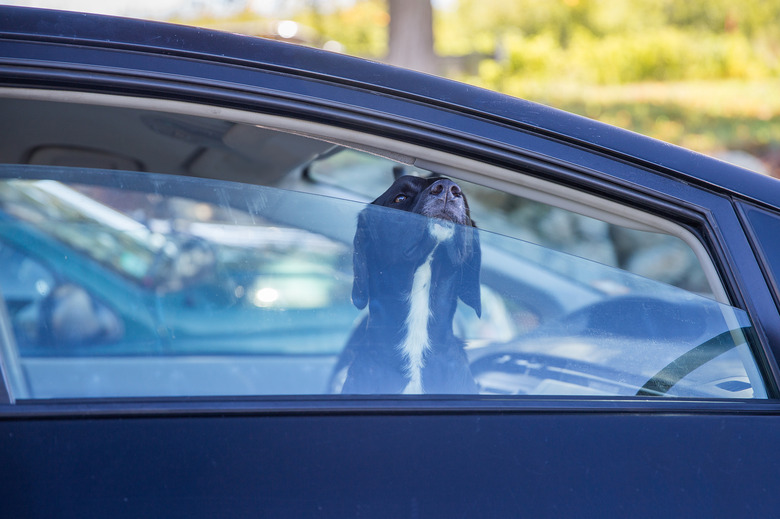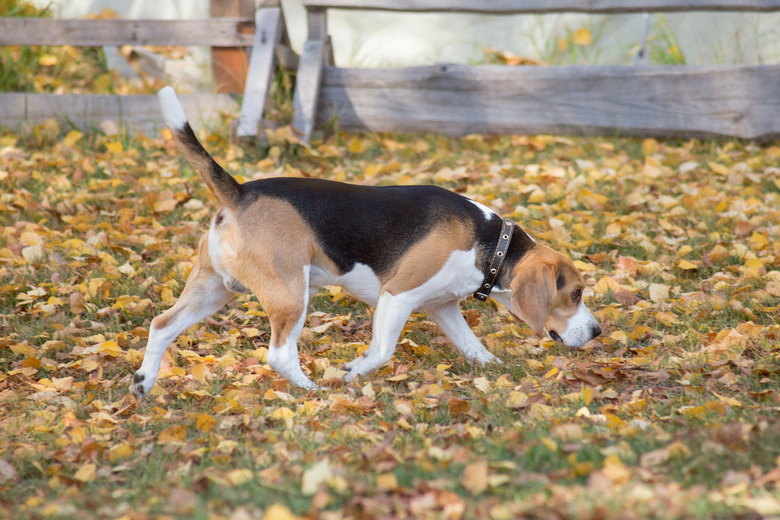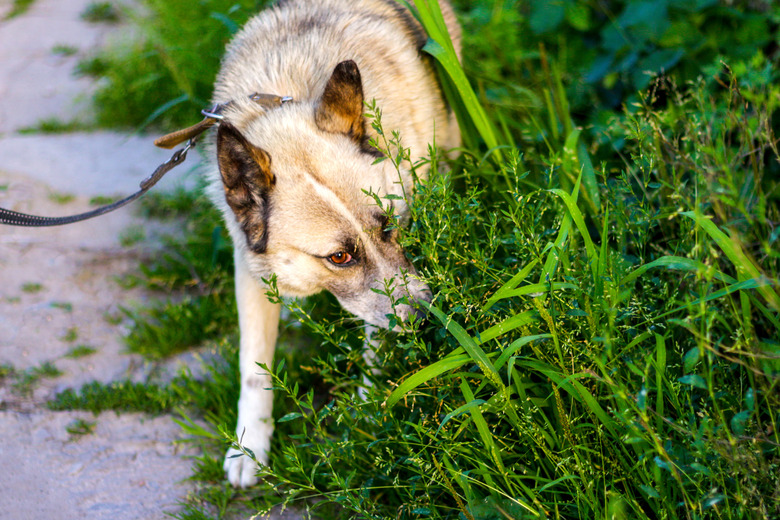How Do Dogs Know They're Close To Home On Car Rides?
Dog owners know the stories are all over the internet in some form or another...a dog gets lost when their family is miles from home and they find their way home, eventually. Dogs are known for their sense of smell, and that may help them track their way home when they're a short distance away. But what about a dog who traverses two or three states to make it back home? What is their sixth sense that helps them navigate?
How do dogs find their way home?
How do dogs find their way home?
One recent story of a dog finding its way home happened in China. A family accidentally left their pet dog Doudou at a highway rest stop about 80 miles away from their home. The dog surprised everybody when it returned home — dirty and skinny — 26 days later and after walking about 40 miles to get back.
The New York Times surmises that dogs rely on scent cues, particularly when they are close to home, such as with the case of a dog who escaped from the family car three miles from home. That's a close enough distance that the theory is they can use their "scent map" to find their way back. The paper suggests that even the slightest hint of the scent of their owner can be picked up, along with other scents that you may not ever notice but that the dog can clearly smell, such as fertilizer on a garden or a food manufacturing facility.
But since Doudou was driven in the car to the rest stop, he couldn't have left scent cues behind or picked up on many from that far away, and presumably he wasn't able to study what was out the window to get environmental cues. So how did Doudou figure it out?
Dogs and magnetism
Dogs and magnetism
Recent research shows that dogs may be sensitive to differences in magnetic orientation. In 2020, Czech researchers from the Department of Game Management and Wildlife Biology, among others, published research on 27 hunting dogs equipped with GPS collars. Despite anecdotal reports of the astonishing homing abilities in dogs, their homing strategies are not fully understood. When returning home, the dogs either used a technique called tracking by following the outbound route, or found a new route by scouting. At the beginning, the dogs' scouting track closely aligned with the north-south geomagnetic axis, even if they weren't following the north-south direction to get home.
The scouting technique seems to be a true navigation technique for finding a new way, one that also allows the dogs to take shortcuts. This study also considered the effect of environmental cues on dog navigation. The researchers expected to see the dogs using environmental cues in the manner they called "visual piloting," or orientating toward visible landmarks when the dogs had views of the horizon. The results showed, though, that the dog's field of view of its surroundings did not seem to alter its return path. Neither, for that matter did the wind direction or speed or the height of the sun in the sky.
Dog's sense of smell
Dog's sense of smell
One thing that dog owners who take their dogs on car drives may have noticed is that the dogs seem to perk up when they're close to home. What could the dog's sixth sense be that somehow lets them know they are close to home? In the case of the car drive, a small dog on the car floorboards may not be able to see outside, which would rule out environmental cues. A dog could somehow know the turns the car might take to get home, but that doesn't seem to hold true because a dog can perk up when they're close to home even if you're coming from a different direction or from a route you don't normally take. So what gives?
In these cases, it's likely that the dog's incredible sense of smell is giving him the knowledge. Even though you might think that your neighborhood doesn't smell any different than the rest of your city, it's likely that it does. In fact, each street corner probably smells different to your dog. If you're heading from your town to another, possibly a few hours away, everything your dog smells in the new place is going to smell different.
A dog's sense of smell is powerful enough to detect one part per trillion, which would be a single drop of liquid in 20 Olympic-size swimming pools. Even with the car windows rolled up, your dog's sense of smell will be able to detect the different smells in the different areas you're driving through. So it's likely that your town has a distinct smell that lets the dog know as you approach the area that it's heading back to something familiar.
In summary
In summary
When a dog is lost miles from home, they probably uses the north-south magnetic axis to help them find their way home. When your dog perks up when you're 15 minutes outside of town after returning home from a long car ride, it's probably the dog's powerful sense of smell that lets them know that you're returning home. In a car with the windows rolled up, a dog's sense of smell is so strong that it can tell that each city smells slightly different than the last, even if you can't smell the difference. So while it may seem like your dog has a "sixth sense," it's probably just their powerful nose and the ability to sense magnetic alignment that gives it its clues.



